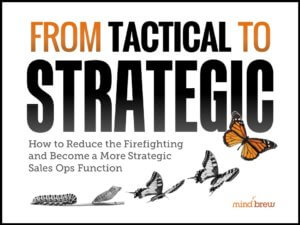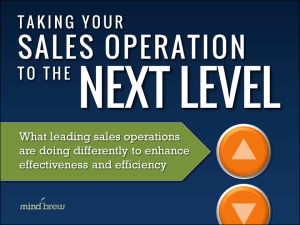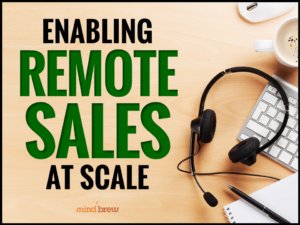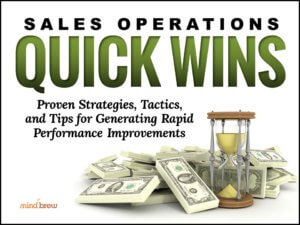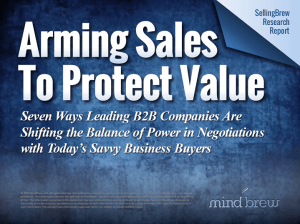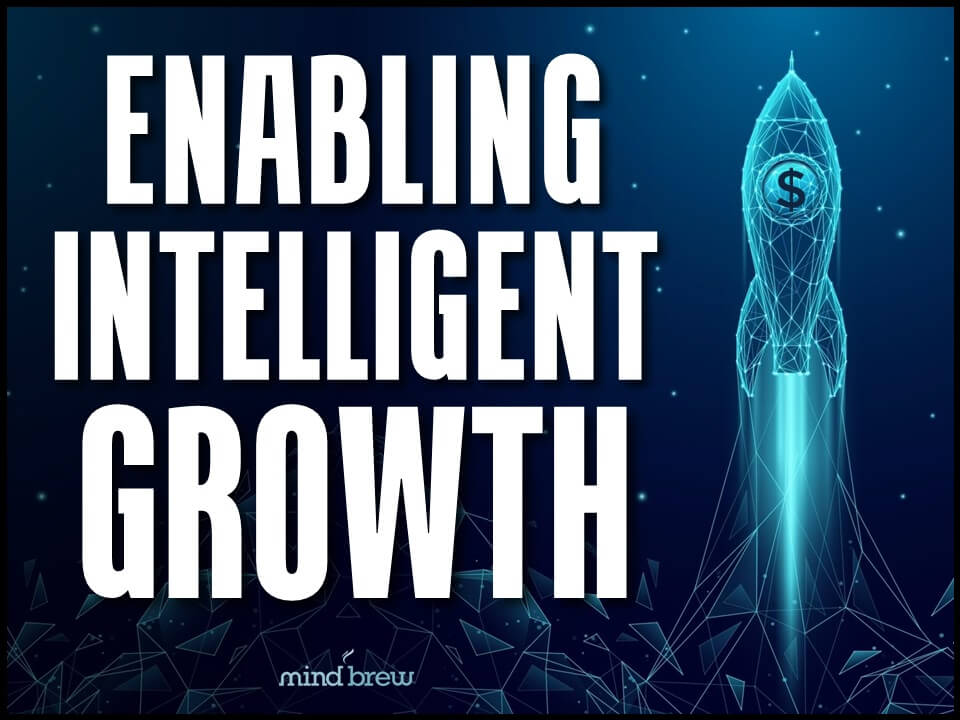Most B2B sales ops teams are tasked with sales enablement, with helping the sales team to do a better job. And most B2B sales ops teams approach this task by asking one question over and over:
How?
How are salespeople going to connect with customers? How will they interact? How will they log their interactions?
When sales teams transition to selling remotely, these questions take up even more time. Sales ops becomes heavily involved in discussions about tools and technology.
But these how questions are just one aspect of sales enablement, and we believe, the less important of the two aspects.
You see, how questions are largely tactical in nature. And while tactics are important, they never yield the magnitude of benefit that strategy does.
Sales ops teams engaged in strategy ask different kinds of questions:
- Who? Who are our best prospects? Who is most likely to be receptive to our products? Who will be most profitable for the company over the long term?
- What? What should be we telling our prospects? What should we sell them? What messages and offers are likely to result in greater sales?
- When? When are prospects most likely to be receptive? When should we deliver the various messages and pitches that we have in our arsenal?
- Why? Why should customers buy from us? Why are our products the best fit for them? Why are we a better choice than competing options?
In times of change (like transitioning to remote sales during a pandemic), it can be easy to get trapped in a cycle of focusing on the how questions. After all, when you ask people to do something new, they all want to know how to do it.
But ultimately, these how questions are just not as important as the more strategic who, what, when, and why questions. In the long run, deciding whether you run your sales presentations through Zoom or WebEx or Microsoft Teams is not going to have nearly as big an impact as building a model that helps your sales team find the right customers to deliver those sales presentations to.
Of course, you can’t dismiss the tactical concerns entirely. Your sales team really does need your expertise with tools and technology.
But don’t let these tactical considerations take so much of your time and focus that you lose sight of the more important strategic questions.
We have a few resources that delve into the differences between a strategic and a tactical mindset in greater detail:
- From Tactical to Strategic Sales Ops offers tips for cutting back on “firefighting” and spending more time on high-impact activities. It helps you set — and focus on — the right priorities.
- Taking Your Sales Operation to the Next Level examines best-in-breed sales ops teams. It highlights what these teams do differently and how to implement some of these ideas in your own team.
- Enabling Remote Sales at Scale takes a more specific look at how sales ops teams can keep their focus on the strategic during times of transition to remote sales, or other challenging times.
When faced with new and uncertain situations, it’s easy to spend all your energy on figuring out how to do what needs to be done. But if you can set aside a substantial amount of time and energy to focus on who, what, when, and why, you’ll have a larger impact in the long run.

